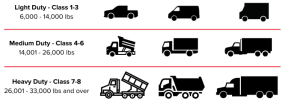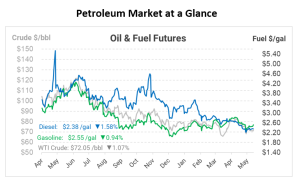
California to Ban Sale of New Diesel Trucks by 2036
California regulators have voted to prohibit the sale of new commercial diesel trucks by 2036 and require all trucks to be “’zero-emissions” by 2042. The decision puts California ahead of the pack in addressing national tailpipe pollution.
The Advanced Clean Fleets rule, California’s second zero-emissions trucks rule and the first in the world to require new commercial trucks — including garbage trucks, delivery trucks, and other medium and heavy-duty vehicles — to be electric or powered by hydrogen, was unanimously approved by the California Air Resources Board.
What’s the impact of the new mandate on the transportation industry?
The mandate would require businesses with 50 or more trucks to transform their fleets into electric or hydrogen models by 2042. Although EVs and hydrogen vehicles both create more emissions than a vehicle running on a B20 blend or on renewable diesel, California is treating the former as “zero-emission” since the emissions happen upstream and not at the tailpipe.
The earliest deadline is for drayage trucks, which must be converted to electric models by 2035, while new sales starting in 2024 must be zero-emissions. Drayage trucks are generally diesel-fueled, heavy-duty (Class 8) trucks that transport containers and bulk freight between the port and intermodal rail facilities, distribution centers, and other near-port locations. Vehicles such as garbage trucks and school buses must be zero-emissions by 2027.

The trucking industry has strongly opposed the regulations, arguing that the requirements are costly since electric models are more expensive than diesel trucks. Because large trucks are subject to weight restrictions, the heavier batteries will result in less goods hauled per delivery, adding even more logistics costs. Those costs will ripple down to impact consumer goods, since nearly all modern goods and conveniences are supported by diesel power.
The industry has also claimed that the deadlines are unattainable due to a lack of EV charging infrastructure and available space at ports. Supporters claim it will enhance public health in disadvantaged communities that have suffered from polluted air while mitigating the impacts of climate change.
California had also requested waivers from the Clean Air Act to impose stricter standards than the federal government for heavy-duty vehicles. The state’s stricter tailpipe emissions rules will have broader implications beyond California, which has substantial influence over the US auto industry and may pave the way for other states to follow suit. New York, New Jersey, Washington, Oregon, Massachusetts, Vermont, and Colorado have already implemented California’s Advanced Clean Trucks rule.
It is important to remember that the state has already banned the sale of new gasoline-powered cars beginning in 2035 and that this new mandate was issued after the state enacted a groundbreaking rule to limit emissions from diesel-powered trains.

This article is part of Daily Market News & Insights
Tagged:
MARKET CONDITION REPORT - DISCLAIMER
The information contained herein is derived from sources believed to be reliable; however, this information is not guaranteed as to its accuracy or completeness. Furthermore, no responsibility is assumed for use of this material and no express or implied warranties or guarantees are made. This material and any view or comment expressed herein are provided for informational purposes only and should not be construed in any way as an inducement or recommendation to buy or sell products, commodity futures or options contracts.





